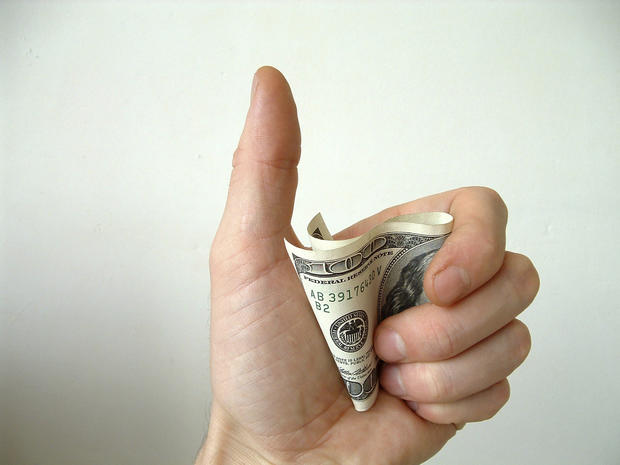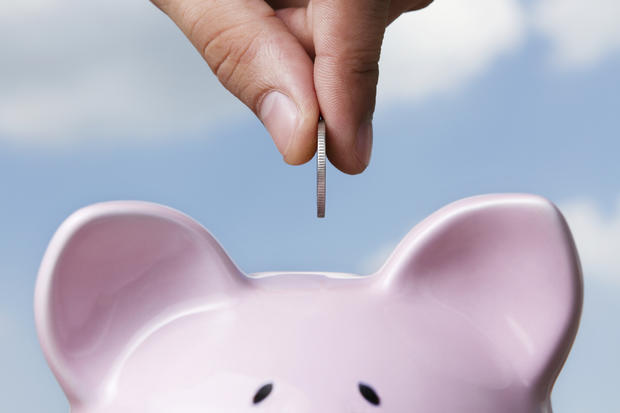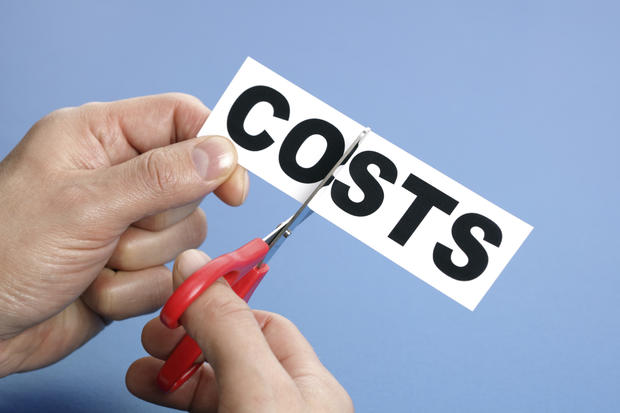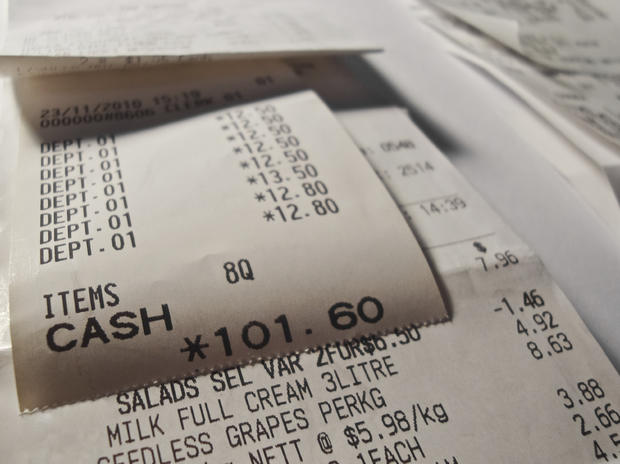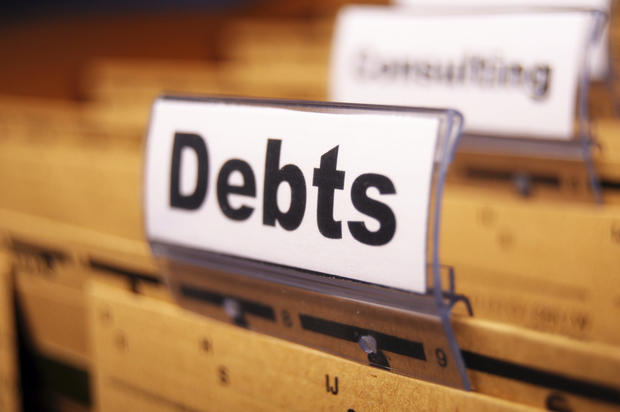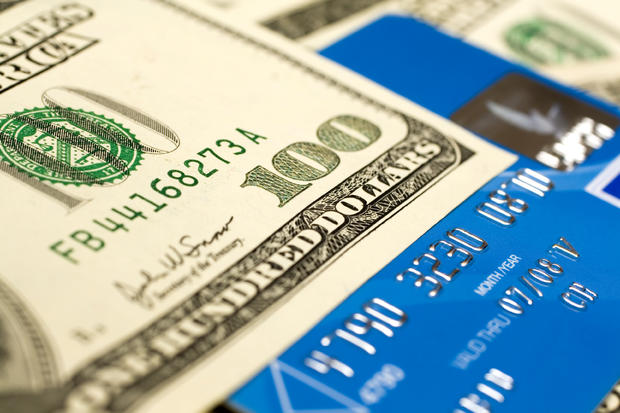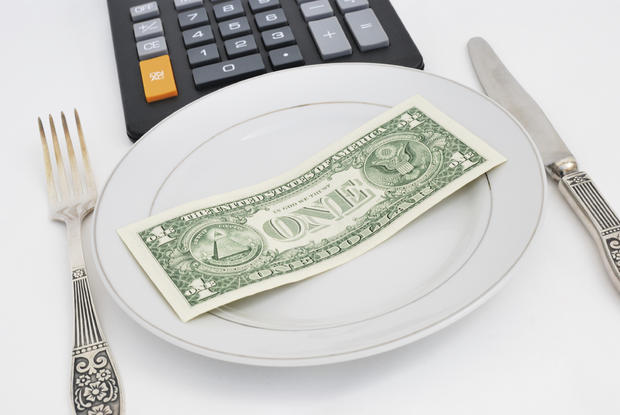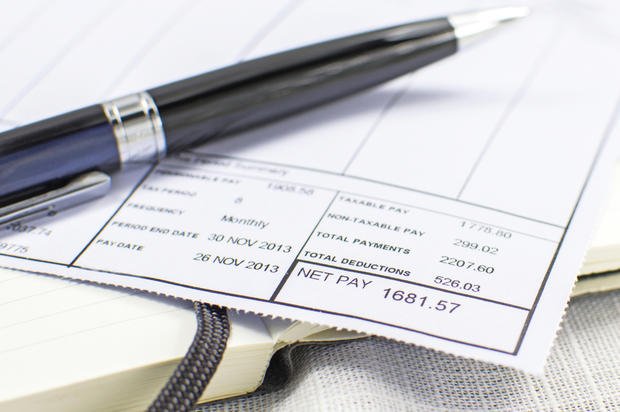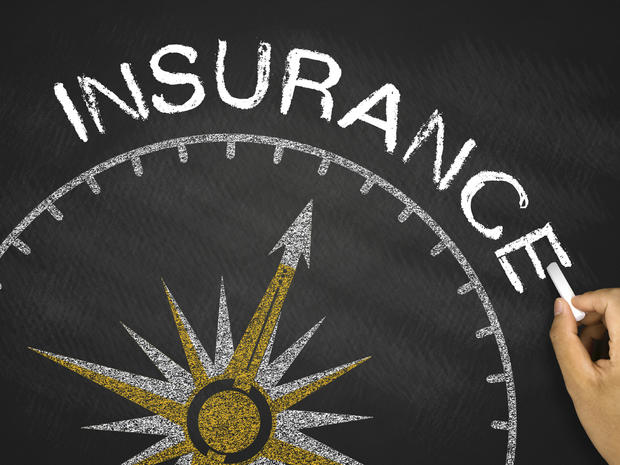12 ways to be richer a year from now
Without even knowing you I'd be willing to bet that the New Year's resolutions you made this year didn't materialize.
There's no point agonizing over that -- it's what happens to most people.
But you can do something about it.
Here are 12 ways to be richer a year from now. You don't have to do them all, of course, but accomplishing just a few could make a big difference in your life a year from now. Even more important, the goals you achieve this year will set the stage for even greater accomplishments next year.
The most important step, as always, is to get started.
Click ahead for 12 strategies.
Increase your 401(k) contribution
This is probably the single easiest and most painless way to ensure that you'll be richer a year from now. You can increase your 401(k) contribution by 1 percent, 2 percent, 3 percent or whatever amount you feel comfortable with.
Since it will be payroll deducted, it will require no further action on your part. And since the contribution is tax-deductible, at least part of the amount will effectively be paid by the government. For example, a 3 percent contribution may have been net effect of a 2 percent reduction in your net pay, after accounting for the tax benefit.
Start a non-retirement payroll savings plan
If you are already maxed out on your 401(k) contributions, or if your employer doesn't offer a 401(k) plan, you can start a non-retirement payroll savings plan. Just like a 401(k) plan, the money is deducted from your pay, and put into a savings vehicle of your choice.
You can have the money directed to just about any account or investment that you choose. This can be a savings account, money market fund, a mutual fund or brokerage account. It will allow you to save money on an automatic basis. And just as is the case with a 401(k), the money will come out with virtually no action required on your part, and it will be hardly noticeable once you get used to it.
You can also use this method to fund a self-directed traditional IRA or Roth IRA. You can simply have the money deducted from your pay and transferred to the IRA account, where you will be free to invest the money as you choose. And since the contributions will be tax-deductible, you can expect a larger tax refund in the spring.
Pick 3 expenses to eliminate
Reducing or eliminating expenses is one of the best ways to improve your financial situation. Pick three expenses that you are currently paying on a regular basis, and get rid of them.
Naturally, these need to be non-essential expenses. You can take a look at any kind of premium services that you have, including your cable TV package, or even your cellphone package. You can also consider an unused gym membership, magazine subscriptions, or even a home security system if you live in a relatively safe area.
Eliminating expenses will free up more of your budget for more wealth-building purposes, like savings and investments.
Leave your credit cards at home
If you normally shop with a wallet full of credit cards, the time is now to adopt a strategy in which your credit cards are removed from your wallet, and only pulled out for true emergency situations.
When you are paying with cash, or the money is being direct debited out of your checking account, it puts limits on how much you spend. Most people will instinctively avoid draining their wallet or checking account completely. Conversely, since credit cards afford the wiggle room of a credit line, you'll be tempted to spend more money than you actually have.
Try leaving your credit cards home when you go shopping, for at least the next few weeks, and see if it doesn't help you to reduce your spending. You could even see the added benefit of increasing your credit scores as a result of lower credit card balances relative to your credit card limits -- that's a major factor in your credit scores called credit utilization. (You can get a free credit report summary every month on Credit.com to see how your utilization is impacting your scores.)
Don’t take on any new debt
Everyone who is in debt wants to get out of it. But step number one in getting out of debt is not taking on any new debt. It will do little good to have plan to payoff your debts, while you are continuing to incur new ones.
And if you might be unable to commit to a debt payoff strategy, simply avoiding new debt and making your minimum monthly payments will eventually get you out of debt. Even revolving credit lines require that you pay a certain amount of principal each month.
Eventually, all of your debts will be paid as long as you avoid taking on new debt. This is probably the single easiest way to get out of debt, at least eventually.
Start that debt snowball
Far more powerful than simply not taking on any new debt, is combining that strategy with a concentrated debt payoff effort. Make this year the year you finally start a snowball, and get out of debt once and for all.
With a debt snowball, you start by paying off your smallest debt first. Once you do that, you move up to paying the next smallest debt, and so on. Paying off the smallest debt not only empowers to take on the next debt, but it also improves your cash flow because the payment on the smallest debt no longer exists. And as each debt is paid, your cash flow improves a little more, making it easier to go after the next card or debt.
But in order for this to work, you have to get started, and this year is as good a time as any.
Use a 0% balance transfer credit card
There are plenty of credit cards out there that offer zero-interest balance transfers. If you have a substantial amount of credit card debt, this can mean big savings.
Let's say that you owe $10,000 in credit card debt at an average interest rate of 15 percent; that means that you will pay $1,500 in interest over the next 12 months. If you transfer the balance to a 0 percent credit card, you will be $1,500 richer one year from now. Most zero-interest transfers run from 12 to 18 months, which will guarantee you at least one year without interest.
If you can combine a 0 percent balance transfer with the debt snowball, you'll get out of debt that much faster. You can figure out a credit card payoff timeline using free calculators like this one.
Cut your living expenses 10 percent across the board
Cutting out certain expenses entirely can be difficult, and in some cases impossible. As an alternate strategy, you can simply make an across the board cut in your spending, averaging say 10 percent.
I say "averaging" because some expenses can't be reduced, such as your mortgage payment. But there are many other ways to save including: food, entertainment, utilities, and even gasoline, repairs, and insurance can often be cut by much more than 10 percent.
Save 10 percent of your income each month
If you are successful in cutting your living expenses by 10 percent, you should plan to direct that money into savings. The purpose of cutting expenses is not to go on a financial diet, but to free up capital for future growth and financial independence.
You can start out directing the extra money into a savings account, and then eventually move into mutual funds, or an investment brokerage account where you can diversify into many different assets.
Cuts in your living expenses may not feel good, but the growth in your savings and investments will more than offset that.
Sell or donate everything you no longer use or need
One of the best ways to raise cash is by selling anything and everything you have that you no longer use or have a need for. You can often sell these items for hundreds or even thousands of dollars. The money sitting in that stuff will look a lot better sitting in a bank account or mutual fund.
If you have items that you don't think you can sell, look into donating them to a charity. The value of the item will be tax deductible, and provide you with at least some extra money when you file your income taxes.
Consider raising the deductibles on your insurance policies
If you are increasing your savings using any of the above strategies, you'll be in a better position to increase deductibles on your insurance policies. This includes your home insurance, auto insurance, and even your medical insurance. This can save you hundreds or even thousands of dollars each year, which will be even more money that you can put into savings and investments.
Understand that one of the benefits of greater savings is the ability to increase deductibles. Since you will have the money to cover the deductibles, you'll be able to "afford" to set them higher. And if you never have to make a claim, you'll be that much richer.
Go vacation-less this year
This is not a fun idea, but it is also one of the very best ways to improve your financial situation. Since a vacation to a local beach can be costly, and the trip to the islands can cost many thousands, you can make significant improvement in your year-end finances by skipping your vacation this year.
No one ever becomes richer without some form of self-sacrifice. The advantage of skipping your vacation is that it will only hurt for the week that you would be away. The rest of your year would be virtually unaffected.
That's one of the best ways to improve your financial situation without creating long-term discomfort.
Plan stay close to home, and enjoy the simple pleasures of life that will help to rechargeable your battery in the same way that a full-blown vacation to a remote resort would.
And if any of these strategies make you feel at all uncomfortable, just think about how much better you'll feel when you're richer a year from now.
